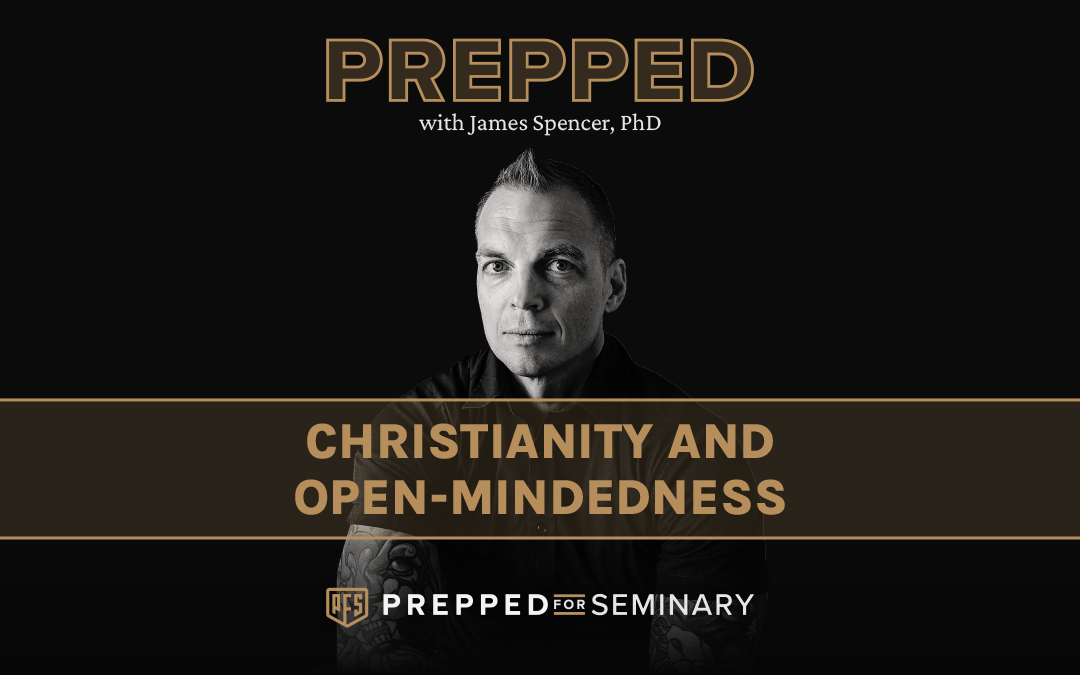https://podcast.preppedforseminary.com/christianity-and-open-mindedness/
In today’s culture, open-mindedness is often celebrated as the highest intellectual virtue. But for Christians, the question isn’t simply, “Are you open-minded?”—it’s “What are you open to?”
This article explores what it means to be truly open-minded from a biblical perspective and why discipleship under Christ requires boundaries rooted in truth.
What Is Christian Open-Mindedness?
Open-mindedness is not about being receptive to everything. It’s about being open to what is real, true, and God-revealed—and closed to anything that distorts His truth.
Christian open-mindedness means:
- Welcoming truth—even if it challenges us
- Rejecting falsehood—even if it sounds reasonable or appealing
- Submitting to Christ as the anchor of our minds, hearts, and lives
Discipleship Is a Holy Constraint
Many view constraints as restrictive. But Scripture presents them as life-giving.
In the Great Commission (Matthew 28:18–20), Jesus instructs His disciples to:
- Baptize in the name of the Father, Son, and Holy Spirit
- Teach others to obey everything He has commanded
This is not a casual invitation. It’s a call to allegiance—a constraint that anchors us in the truth and frees us from sin.
We are to learn to live according to all that Christ did. We’re learning to imitate Christ, and so Christ becomes a constraint for us.
Why Boundaries Create Freedom
Just like:
- Grammar makes communication possible
- Traffic laws prevent chaos
- Scripture provides boundaries that lead to spiritual flourishing
God’s constraints are not barriers to joy—they’re the framework for reality.
Without boundaries, we:
- Lose clarity
- Drift into distortion
- Confuse control with understanding
With God’s Word as our anchor, we:
- Gain discernment
- Live with purpose
- Align with the reality God designed
Open to Truth, Not Everything
Should Christians engage with ideas outside the Church? Absolutely. But our openness must always be filtered through biblical authority.
Christians can learn from:
- Science
- Psychology
- History
- Art
But no idea, no matter how brilliant, should be accepted apart from God’s truth.
We don’t entertain ideas for novelty’s sake. We evaluate them in light of Scripture. When they align with what’s good, true, and beautiful, we receive them as gifts. But we never surrender the ground of discipleship.
The Goal: Discipleship That Sees Clearly
Discipleship teaches us how to:
- Distinguish between truth, half-truth, and falsehood
- Live under Christ’s authority
- Align every area of life with God’s story, not the world’s
True Christian open-mindedness is:
- Rooted in God’s Word
- Constrained by biblical conviction
- Open to truth, beauty, and goodness, as defined by God
This is not small-mindedness. It is a radical, clear-minded, God-centered way of life.
Reflection Questions
Use these prompts for personal reflection, journaling, or group discussion:
- What has shaped your understanding of open-mindedness up until now?
- Are there ideas or influences in your life that need to be evaluated in light of God’s Word?
- How have God’s boundaries helped you flourish spiritually?
- What voices compete with God’s truth in your daily decisions?
- In what area is God inviting you to say “no” in order to say a deeper “yes” to Christ?
In a world that urges believers to stay open to everything, Christian discipleship calls for a different kind of openness—one that is rooted in truth, shaped by Scripture, and anchored in Christ’s authority.
Saying “yes” to Jesus means saying “no” to distortion, compromise, and confusion.
This isn’t about closing our minds but aligning them with reality. When we embrace the constraints of God’s Word, we don’t shrink our lives—we step into the only kind of freedom that truly matters: life with God, on His terms, for His glory.
